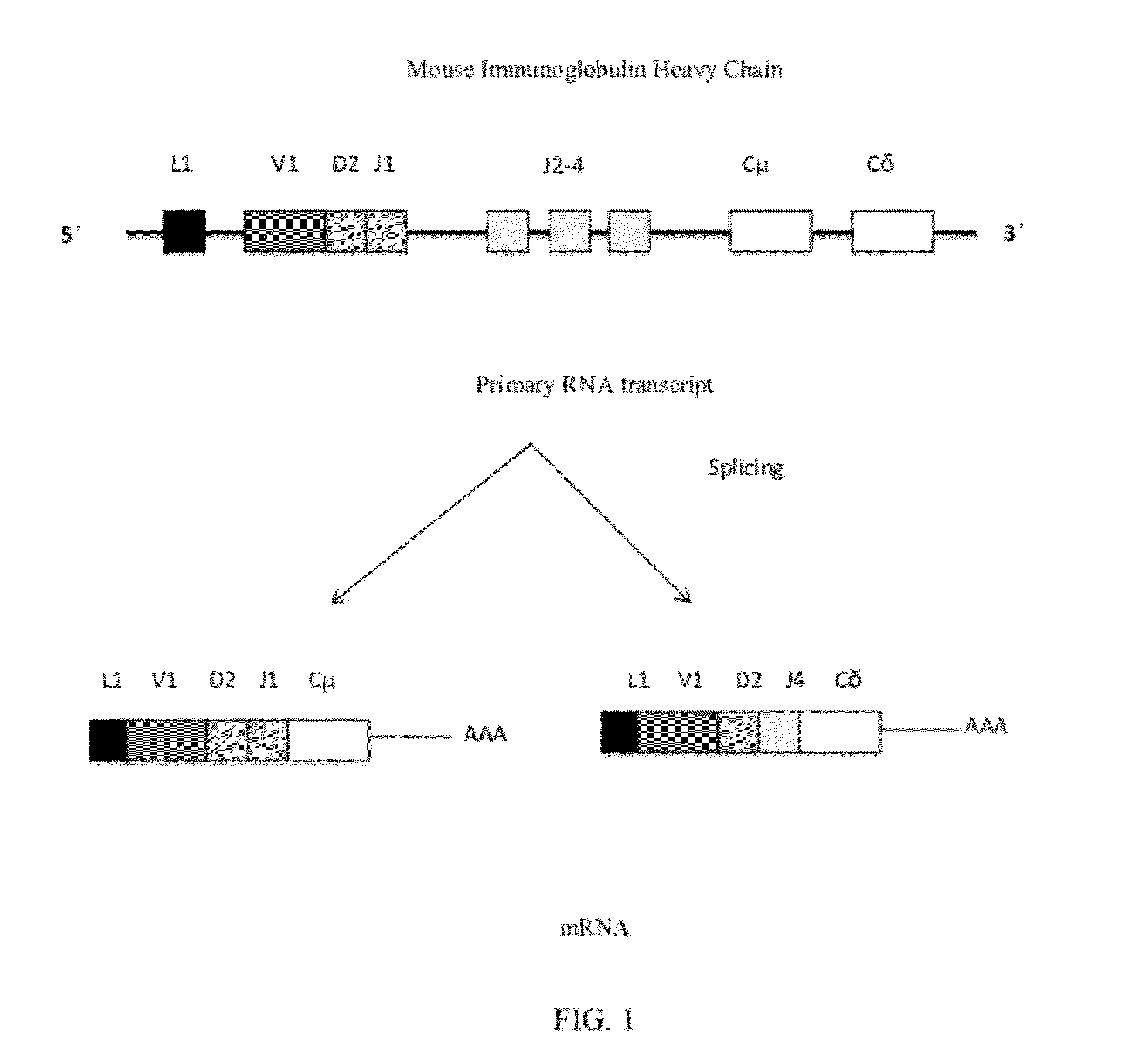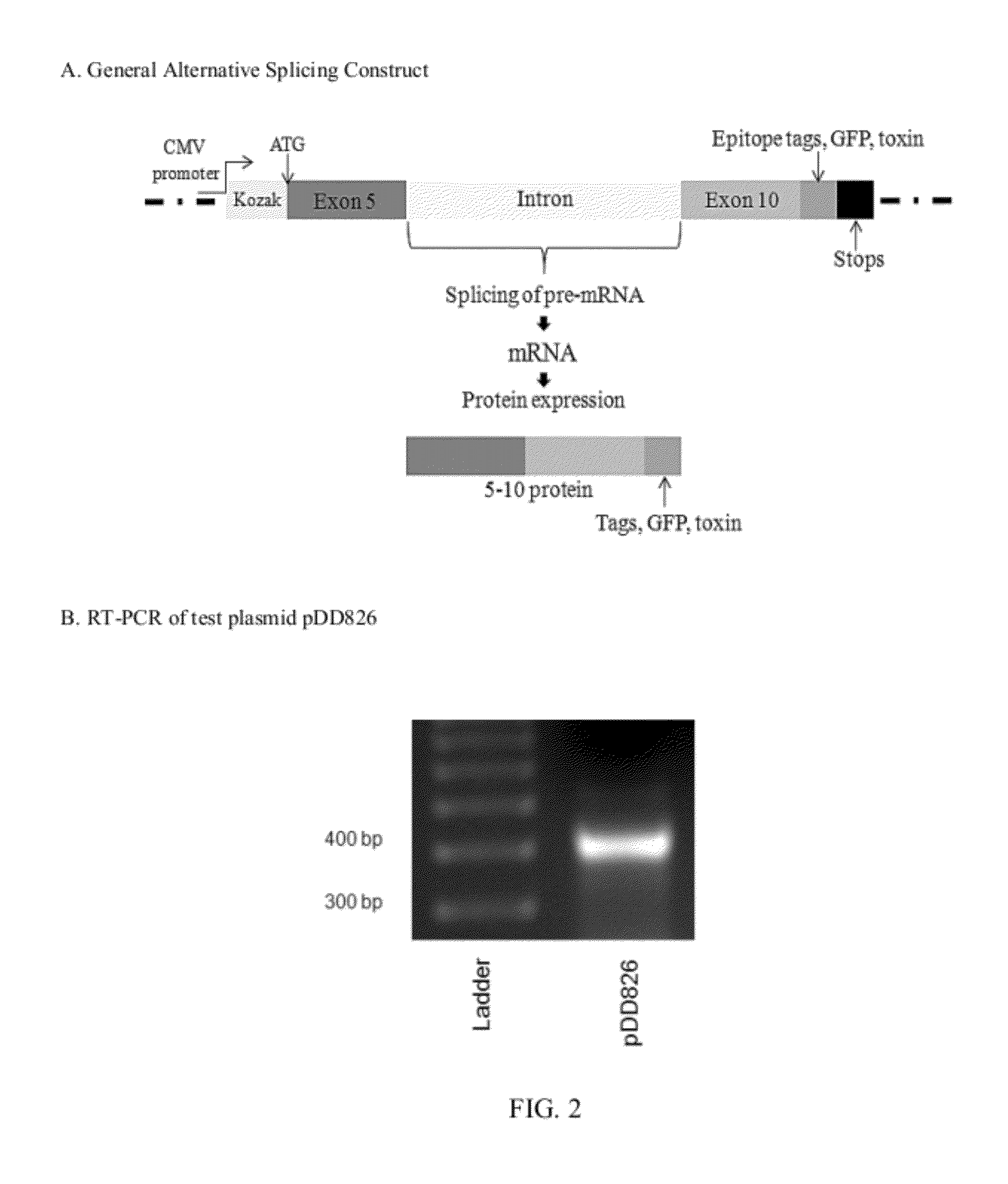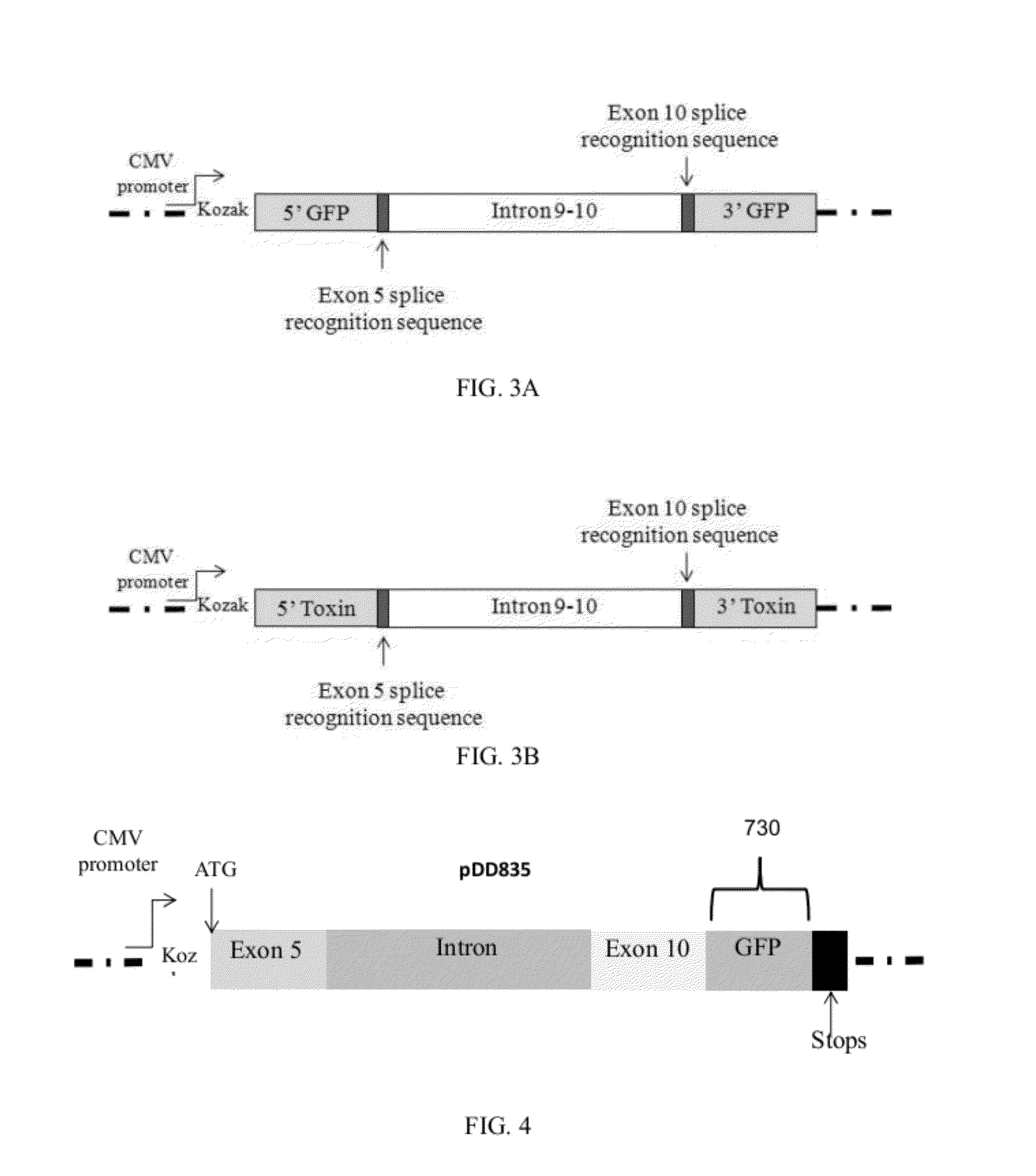Alternative Splicing Constructs and Methods of Use
a splicing construct and construct technology, applied in the field of alternative splicing nucleotide constructs, can solve the problems of many factors that remain poorly understood, and the splicing mechanism of action that results in the production of cd44v6 remains poorly understood
- Summary
- Abstract
- Description
- Claims
- Application Information
AI Technical Summary
Benefits of technology
Problems solved by technology
Method used
Image
Examples
example 1
Construction of the GFP-Containing Splice Vector (pDD835)
[0090]The splice vector was constructed in three cloning steps. The plasmid pCMV6-Entry (available from Origen Technologies, Ltd., Rockville, Md.) was cut with SgfI and HindIII, then ligated to the 140 by PCR of CD44 Exon 5 amplified with high-fidelity polymerase from MCF-7 genomic DNA with the primers E5SgfFor (5′-AAAAGCGATCGCATGACTATTGTTAACCGTGATGG-3′) and NewE5HindRev (5′-TTGCAAGCTTTGGTAGCAGGGATTCTGTC-3′) (restriction sites underlined). This plasmid was then cut with HindIII and MluI and ligated to the 2853 by PCR of CD44 Intron 9-10 and Exon 10 amplified from MCF-7 genomic CD44 DNA with the primers I110HindFor (5′-ACAAAAGCTTGTAAGCAAGATGG-3′) and E10MluRev (5′-AAAAACGCGTACCAGCTGTCCCTG-3′), creating pDD826. Finally, pDD826 was cut with Miul and XhoI and ligated to the 720 by PCR of eGFP from pcDNA3-eGFP with the primers YFPM1uFor (5′-CGCCACGCGTCAGAAGAACGGCATC-3′) and YFPXhoRev (5′-AAAACTCGAGTTACTTGTACAGCTCGTC-3’). This resul...
example 2
Construction of the Toxin-Containing Splice Vector (pDD834)
[0091]The plasmid pDD826 was cut with MluI and NotI and ligated to the 409 by PCR of the toxin vapC-1 from pDD686, a construct that contains the vapBC-1 operon from NTHi strain R2866 with a C-terminal polyhistidine epitope tag fused to vapC-1, using the primers ClMluFor (5′-GAGAACGCGTATGATTTATATGTTAG-3′) and C1PetNotRev (5′-TTAAGCGGCCGCTTTGTTAGCAGCC-3′). This resulted in the VapC-1 toxin-containing plasmid pDD834.
example 3
Transfection of Breast Cancer Cells Lines with Splice Vectors
[0092]MCF-7 and SKBR-3 breast cancer cell lines were transfected with 1 or 2 μg of various splice vectors (pDD835 or pDD834) or control vectors using the Nucleofector II device (Lonza, Basil Switzerland) using program P20 specifically designed for transfection of breast cancer cell lines. Transfections were performed following manufacturer's protocol. Following transfection, the cells were cultured in 6 well plates containing RPMI 1640 supplemented with 10% FBS for 24 to 48 hours.
PUM
| Property | Measurement | Unit |
|---|---|---|
| Fluorescence | aaaaa | aaaaa |
Abstract
Description
Claims
Application Information
 Login to View More
Login to View More - R&D
- Intellectual Property
- Life Sciences
- Materials
- Tech Scout
- Unparalleled Data Quality
- Higher Quality Content
- 60% Fewer Hallucinations
Browse by: Latest US Patents, China's latest patents, Technical Efficacy Thesaurus, Application Domain, Technology Topic, Popular Technical Reports.
© 2025 PatSnap. All rights reserved.Legal|Privacy policy|Modern Slavery Act Transparency Statement|Sitemap|About US| Contact US: help@patsnap.com



